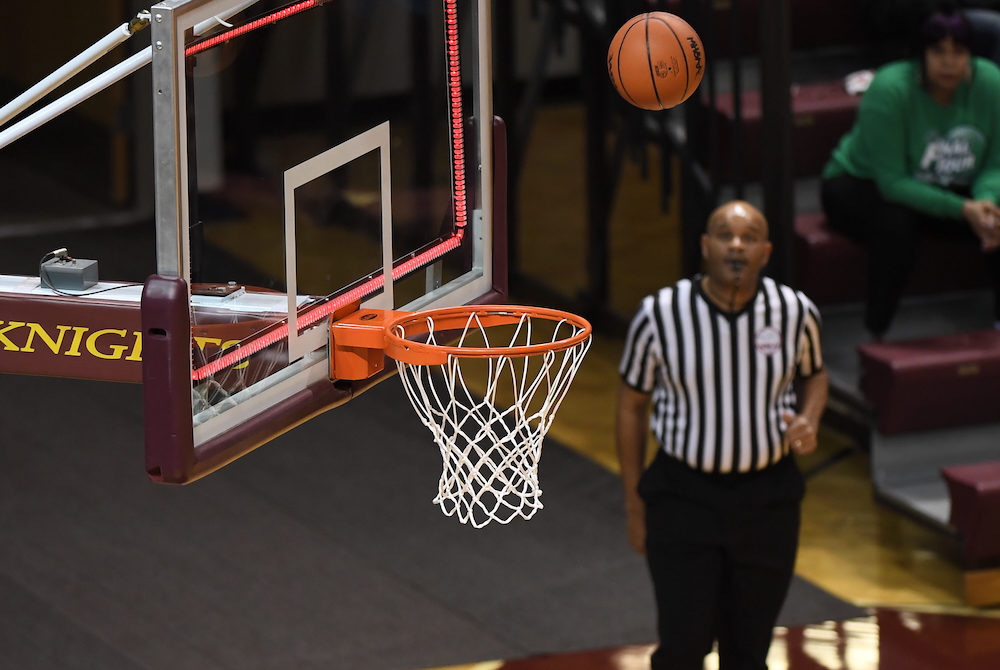
Official Feedback
June 10, 2014
We receive much unsolicited comment about the performances of officials and the conduct of spectators. Here’s some of what the MHSAA does to actively solicit input from its key constituents.
Since 1956, the MHSAA has required member schools to provide numerical ratings of officials who work their contests. Since 1998, the system has also allowed schools to cite particular areas of perceived weakness; and doing so is required whenever a school provides a rating of “5” (worst) on the 1-to-5 scale.
There are many deficiencies in a system like this, including that it sometimes means that coaches or administrators are doing the rating, and some of them have never officiated and may not know the rules and mechanics as well as the officials. The rating can also be affected by whether the school won or lost.
Nevertheless, the system has value, not as a true evaluation of an official’s performance for any particular contest, but – when the ratings of all schools are combined over a three-year average – as a number that the official can use to understand his or her abilities relative to all other officials. And it’s a number the MHSAA can use, along with recommendations of local officials associations and assigners, when considering assignments to various levels of MHSAA tournaments.
It is also noteworthy that for 25 years, the MHSAA has used a reporting form allowed in some cases and required in others, whereby officials report unusual events to the MHSAA office immediately after contests. During a typical fall season, about 300 such reports will be filed; about 250 each winter season; about 200 each spring season. Any school which receives three or more negative reports over three seasons receives a letter of concern from the MHSAA and the school’s name is published in benchmarks; and any school that receives no such reports over three seasons receives a letter of praise.
In 2008-09, the MHSAA also began a program whereby officials could rate school sportsmanship. During the winter season of 2013-14, there were approximately 4,000 reports filed, including 2,400 in basketball. The Basketball Coaches Association of Michigan honors the best 100 schools where BCAM members are coaching.

Be the Referee: Block or Charge?
By
Paige Winne
MHSAA Marketing & Social Media Coordinator
January 21, 2025
Be The Referee is a series of short messages designed to help educate people on the rules of different sports, to help them better understand the art of officiating, and to recruit officials.
Below is this week's segment – Block or Charge? - Listen
In basketball – if you are attempting to take a charge, do you have to be stationary? Can a defender draw a charge while sliding his or her feet?
A defensive player does not need to be stationary in order to draw a charge.
Once a defender has established legal guarding position – which is when the defensive player has both feet on the floor and is facing the opponent, the defender can move laterally or obliquely to maintain that position. Even if it means having one – or both – feet off the floor when contact occurs with the offensive player.
In a block or charge situation, many fans like to say it’s a block because the defender was moving, but that’s not always the case. A defender can draw a charge while in motion.
Previous 2024-25 Editions
Jan. 14: Out of Bounds, In Play - Listen
Jan. 7: Wrestling Scoring - Listen
Dec. 17: Bowling Ball Rules - Listen
Dec. 10: Neck Laceration Protector - Listen
Dec. 3: Basketball Goaltending - Listen
Nov. 26: 11-Player Finals Replay - Listen
Nov. 19: 8-Player vs. 11-Player Football - Listen
Nov. 12: Back Row Setter - Listen
Nov. 5: Football OT - Listen
Oct. 29: Officials Registration - Listen
Oct. 22: Volleyball Serve - Listen
Oct. 15: "You Make the Call" - Soccer Offside - Listen
Oct. 8: Roughing the Passer - Listen
Oct. 1: Abnormal Course Condition - Listen
Sept. 25: Tennis Nets - Listen
Sept. 18: Libero - Listen
Sept. 10: Cross Country Uniforms - Listen
Sept. 3: Soccer Handling - Listen
Aug. 24: Football Holding - Listen

